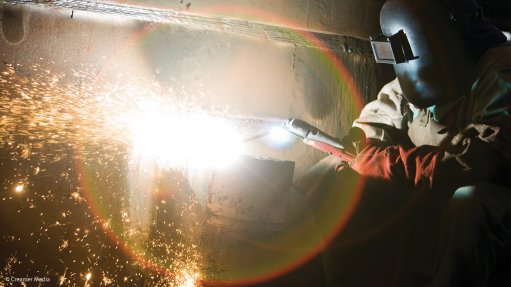
Photo by: Duane Daws
The seasonally adjusted Kagiso Purchasing Managers’ Index (PMI) increased by 1.8 index points to 51.7 in February, helped by a rebound in the new sales orders index.
The new sales orders index increased by 3.2 index points to 53.4, owing to improved global demand as the eurozone’s manufacturing sector continued to perform strongly, Kagiso Asset Management research head Abdul Davids said.
“The preliminary eurozone manufacturing PMI reading for February shows that underlying demand for manufactured goods continued to be robust, although February’s preliminary reading was slightly lower than the January level,” Davids said.
Meanwhile, the business activity index – at 48.4 index points – remained stuck below the 50-point mark for the third month running.
“Business activity levels below 50 do not bode well for manufacturing production and the prolonged strike in the platinum sector could be having a dampening impact on activity levels,” Davids noted.
He added that, against the backdrop of the weak levels of business activity and higher sales orders it was surprising that the inventories index rose sharply to 59.6 index points in February from 53.6 index points in January, pointing out that manufacturers could possibly be stocking up ahead of further cost increases as a result of the weak rand exchange rate.
Further, the price index soared to the highest level recorded since the start of the PMI series in 1999, increasing to 95.1 index points from 89.3 in January.
Davids said this was probably caused by the continued weak rand exchange rate, which pushed up the cost of imported goods paid for in foreign currency.
“Current energy and fuel prices are the highest on record and these constitute a sizeable percentage of manufacturers' cost bases,” he noted.
Looking ahead, manufacturers were less optimistic about expected business conditions in six months’ time, with the index falling to 55.7 index points in February from 61.4 in January.
“The decline in the expected business conditions index, together with the contraction in the leading indicator, does not bode well for manufacturing production in the coming months,” Davids said.